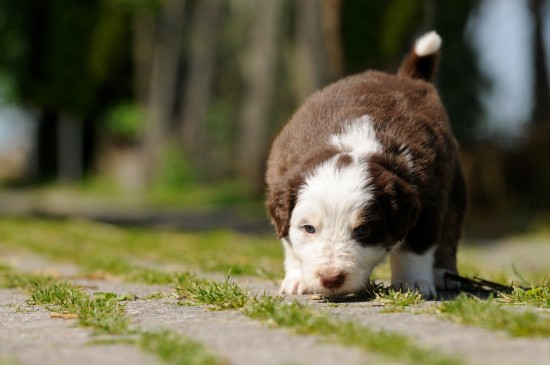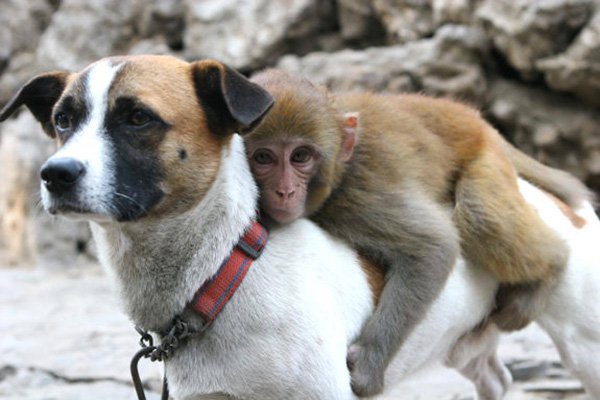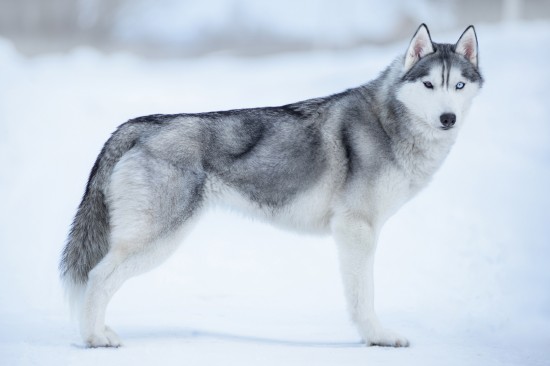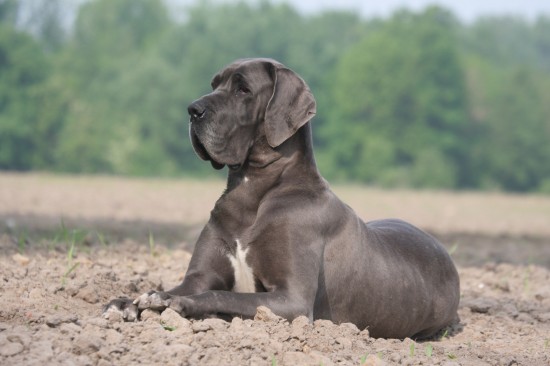

All dog owners know that the canine sense of smell is much more sensitive than that of people, and that dogs use their scenting ability in a whole plethora of ways that we as people cannot manage! Dogs use their sense of smell to learn about the world around them, retain sensory memories of places that they have been, and to help humans in a whole wide range of working roles.
Because dogs are loyal animals that usually live within a fixed routine and are used to visiting the same places on a daily basis, it is unusual for a dog to get lost or disoriented when within the bounds of their usual territories. However, lost dogs, for instance that are stolen, go missing when away from home or that move house and get lost, can and often do find their way home, sometimes against great odds and over large distances.
So, can dogs use their sense of smell to find their way home if they need to? Read on to find out!
Scent receptors in the nose are responsible for receiving and decoding different smells, and dogs have well over forty times more of them than people do!
This means that depending on the breed of dog, the sense of smell of any given dog is between forty and a million times stronger than that of people. Over a third of the brain of the dog is dedicated to processing and decoding these smells too. The actual shape of the dogs nose itself goes a long way towards permitting a large surface area to receive scents, and the mucous membranes within the nose help to collect and retain scent molecules.
Added to this, dogs have an additional tool called Jacobsons’s Organ within the roof of their mouths, which allows dogs to receive and decode odourless pheromones and other unscented information.
Dogs developed their superior sense of smell over the course of their evolution, as it forms an important survival and food-finding mechanism for all dogs and wolves.
Scents can inform your dog of nearby threats, other animals and people, and where other dogs have passed by and scent marked. Dogs can also pick up pheromone cues from other dogs, including bitches in heat, and find natural prey and dead animals that might be a suitable food source.
Ultimately, the canine sense of smell played a large part in the process of dogs coming to live closely with humans, as we as people benefited from the canine sense of smell to help us to find food and warn us of predators.
Dogs that get lost and find their way back home do so by retracing their steps, and where they have already been. A large part of them being able to do this comes down to their ability to scent their previous path, and recognise other smells that they have come into contact with before. They may recognise the scent of a place that they have previously visited, the smell of their owner, or their own scent that was left behind at a previous time.
Once they have latched onto a scent, they can simply follow it, like an olfactory trail of breadcrumbs, to find their way home, providing that they can keep track of the scent in question.
Dogs also use their sense of smell to draw a mental map of where they are, and to orient themselves in the world. Their excellent memory for scent and superior ability to pick up new scents both help them to find their way home.
A range of factors will dictate how hard or easy it is for a dog to use scent trails to find their way home; these include how old the trail is, and other factors that might affect the strength of the trail, such as if it has rained. Natural weather conditions and of course, time itself all affect the strength of a scent trail, and how easy it is for a dog to follow it.
Different breeds of dogs have different scenting abilities too; while all breeds have a greatly superior sense of smell to that of people, breeds such as bloodhounds and others that are renowned for their scenting abilities find it much easier to follow a very faint trail than other breeds.
Under ideal conditions, such as when the weather is cool and damp with lots of vegetation to retain scents, not much rain, and not much traffic by either other animals or people to dilute a trail, a scent trail may remain viable for a dog for up to a month.
In built up environments and places that are heavily trafficked, a scent trail will fade much faster. Light rain and mist actually help to lock in a scent trail and make it easier to follow, but heavy rain will serve to wash a fragile trail away; all of which are factors that can make the difference between whether or not a dog can use their sense of smell to find their way home.
 A quick guide to the simple process of transporting pets to Singapore
A quick guide to the simple process of transporting pets t
A quick guide to the simple process of transporting pets to Singapore
A quick guide to the simple process of transporting pets t
 Dog Breeds With Double Coats
Dog Breeds With D
Dog Breeds With Double Coats
Dog Breeds With D
 Calming Aids For Cats And Dogs
Calming Aids For
Calming Aids For Cats And Dogs
Calming Aids For
 Great Dane Hereditary Health And Longevity
Great Dane Heredi
Great Dane Hereditary Health And Longevity
Great Dane Heredi
 Is Your Rabbit Overweight Or Maybe Obese?
Is Your Rabbit Ov
Is Your Rabbit Overweight Or Maybe Obese?
Is Your Rabbit Ov
Copyright © 2005-2016 Pet Information All Rights Reserved
Contact us: www162date@outlook.com